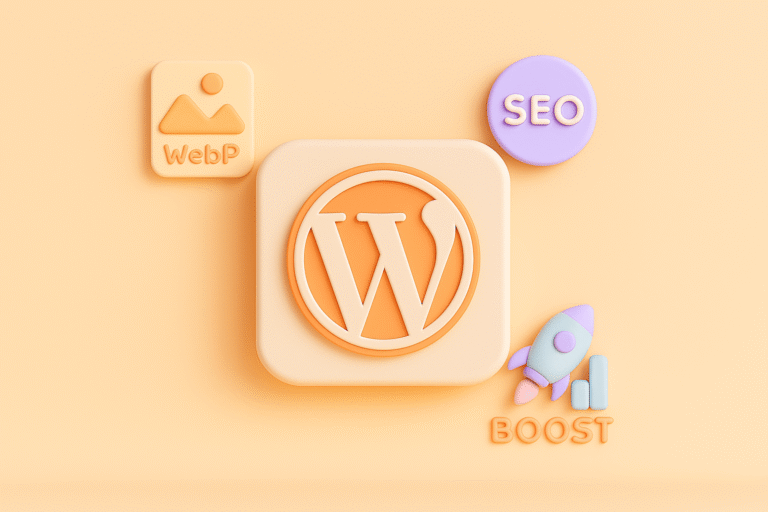
Elevate Your E-commerce Site: Must-Have WordPress Plugins for Online Stores
In today’s digital marketplace, having a robust and user-friendly e-commerce website is essential for driving sales and building a loyal customer base. WordPress, paired with WooCommerce, has emerged as one of the most popular platforms for creating online stores due to its flexibility, scalability, and extensive plugin ecosystem. However, simply installing WooCommerce isn’t enough to unlock the full potential of your e-commerce site. Leveraging the right WordPress plugins can significantly enhance your store’s functionality, improve customer experience, and boost your overall business performance.
Whether you’re a small business owner just starting out, a developer managing client projects, or an established store owner looking to optimize your site, this comprehensive guide will walk you through the must-have WordPress plugins that elevate your online store to the next level. For more insights on enhancing your WordPress site, explore our blog which covers a wide range of plugin tutorials and optimization tips.
Why Plugins Matter for WordPress E-commerce Sites
Plugins extend the core functionality of WordPress and WooCommerce without the need for custom coding. They allow you to:
- Add advanced features like product filters, multi-currency support, or subscription management.
- Improve site speed and performance, which are crucial for SEO and user experience.
- Strengthen security to protect sensitive customer data.
- Enhance marketing capabilities through email automation, SEO optimization, and social media integration.
- Automate routine tasks such as inventory management and order tracking.
With over 58,000 plugins available in the WordPress repository alone, choosing the right ones can be overwhelming. The following selections are tried and tested solutions that can help you build a professional, scalable, and secure e-commerce presence. For ongoing updates and expert advice on WordPress plugins, visit our blog.
Essential Plugins to Boost Your Online Store
1. WooCommerce – The Foundation of Your Store
Before diving into add-ons, it’s important to highlight WooCommerce itself. It’s the most widely-used e-commerce plugin for WordPress and provides a solid foundation for selling physical and digital products, managing inventory, processing payments, and handling shipping.
Key Features:
- Product and order management
- Payment gateway integrations (PayPal, Stripe, etc.)
- Tax and shipping calculation
- Extensive theme and plugin compatibility
If you haven’t installed WooCommerce yet, it’s the first step to building a powerful store. For detailed setup guides and tips, check out our blog.
2. Yoast SEO – Optimize Your Store for Search Engines
Driving organic traffic is crucial for any e-commerce business. Yoast SEO is a comprehensive SEO plugin that helps optimize your product pages, categories, and blog posts to rank higher in search results.
Why Yoast SEO?
- Real-time content analysis and keyword optimization
- Automatic XML sitemap generation
- Breadcrumbs for easier navigation
- Schema markup support to enhance search listings
Optimizing your store’s SEO can increase visibility and attract more potential customers. Learn more about SEO best practices for WordPress in our blog.
3. WP Rocket – Speed Up Your Website
Page load speed is a critical factor in user experience and Google’s search ranking algorithm. WP Rocket is a premium caching plugin that simplifies performance optimization without requiring technical expertise.
Benefits include:
- Page caching and browser caching
- Minification and concatenation of CSS and JavaScript files
- Lazy loading of images to reduce initial load time
- Database optimization for cleaner, faster queries
Faster websites reduce bounce rates and improve conversion rates, making WP Rocket a worthy investment. For additional performance optimization tips, visit our blog.
4. WooCommerce Subscriptions – Recurring Revenue Made Easy
For businesses offering subscription-based products or services, this official WooCommerce extension streamlines recurring billing and subscription management.
Core capabilities:
- Flexible billing schedules (weekly, monthly, yearly)
- Automatic payments and renewal notifications
- Customer self-management of subscriptions
- Integration with multiple payment gateways
Recurring revenue models help stabilize cash flow and increase customer lifetime value. Discover more about subscription management strategies on our blog.
5. WooCommerce Stripe Payment Gateway
Offering multiple payment options is key to reducing cart abandonment. The WooCommerce Stripe Payment Gateway plugin allows you to accept credit cards, Apple Pay, Google Pay, and more seamlessly.
Highlights:
- Secure and PCI-compliant payment processing
- Support for subscriptions and pre-orders
- One-click refunds and saved payment methods
- Local payment methods depending on customer location
Integrating Stripe enhances convenience and trust during checkout. For payment gateway comparisons and integration tips, see our blog.
6. MonsterInsights – Google Analytics for WordPress
Understanding your customers’ behavior is essential for making data-driven decisions. MonsterInsights simplifies Google Analytics integration for WordPress, providing actionable insights within your dashboard.
Features:
- E-commerce tracking to monitor sales, conversion rates, and product performance
- Real-time stats and reports
- Enhanced link tracking and event tracking
- GDPR compliance options
With clear analytics, you can identify opportunities for growth and optimize marketing strategies. Explore analytics and tracking tutorials on our blog.
7. Sucuri Security – Protect Your Store from Threats
Security should never be an afterthought for e-commerce websites handling sensitive customer data. Sucuri Security offers a comprehensive suite of protection tools.
Key components:
- Malware scanning and removal
- Firewall to block malicious traffic
- Security activity auditing
- Post-hack security actions and hardening
A secure website not only protects your customers but also helps maintain your store’s reputation. For more on WordPress security best practices, visit our blog.
8. Advanced Custom Fields (ACF) – Tailor Your Product Pages
If you want to customize product pages beyond the default WooCommerce options, ACF enables you to add custom fields and meta boxes easily.
Benefits:
- Create tailored product attributes or specifications
- Add custom content sections without coding
- Integrates well with page builders like Elementor or Beaver Builder
Custom fields help you present your products more effectively and provide shoppers with detailed information. Learn how to use ACF for e-commerce customization in our blog.
9. MailPoet – Email Marketing Inside WordPress
Email marketing remains one of the most effective channels for customer retention and repeat sales. MailPoet integrates directly with WordPress and WooCommerce to manage newsletters and automated emails.
Advantages:
- Build and send newsletters from your dashboard
- Automate welcome emails, abandoned cart reminders, and post-purchase follow-ups
- Segment your subscribers based on purchase history
- GDPR-compliant subscription forms
Nurturing your customers through targeted email campaigns can boost loyalty and revenue. For email marketing strategies tailored to WordPress, see our blog.
10. WooCommerce Product Filter – Improve Product Discovery
As your catalog grows, helping customers find exactly what they want becomes critical. WooCommerce Product Filter adds intuitive filters for price, attributes, categories, and more.
What it offers:
- Ajax-powered filtering for instant results
- Multiple filter types (checkboxes, sliders, dropdowns)
- Mobile-friendly design
- Compatibility with most WooCommerce themes
Better product discovery means higher conversion rates and happier customers. For tips on improving user experience and navigation, check out our blog.
Best Practices When Using Plugins for Your E-commerce Site
Keep Plugins Updated and Compatible
Outdated plugins can introduce security vulnerabilities or conflict with your WordPress core. Always test plugin updates in a staging environment before deploying live.
Limit Plugin Quantity
While plugins add functionality, too many can slow down your site or cause conflicts. Choose quality over quantity and deactivate or remove unused plugins.
Back Up Regularly
Use backup plugins or hosting services that enable automated backups. This ensures you can quickly restore your site in case of errors or hacks.
Monitor Site Performance
Regularly audit your site’s speed and performance using tools like Google PageSpeed Insights or GTmetrix, especially after installing new plugins. For ongoing performance monitoring and optimization advice, visit our blog.
Conclusion
Optimizing your WordPress e-commerce site with the right plugins is a strategic move toward increasing sales, improving user experience, and managing your store efficiently. From foundational tools like WooCommerce and Yoast SEO to security and marketing solutions, the plugins highlighted here provide a well-rounded toolkit for store owners and developers alike.
By carefully selecting and maintaining these plugins, you can build a professional online store that not only attracts visitors but also converts them into loyal customers. As WordPress and WooCommerce continue to evolve, staying informed about new plugins and best practices will help you stay competitive in the fast-paced e-commerce landscape.
Invest time into plugin research, testing, and optimization, and watch your online store grow both in traffic and revenue. For continuous learning and the latest WordPress plugin trends, don’t forget to explore our blog.


